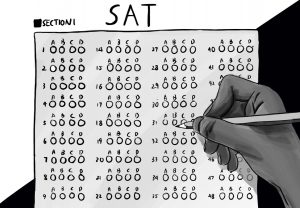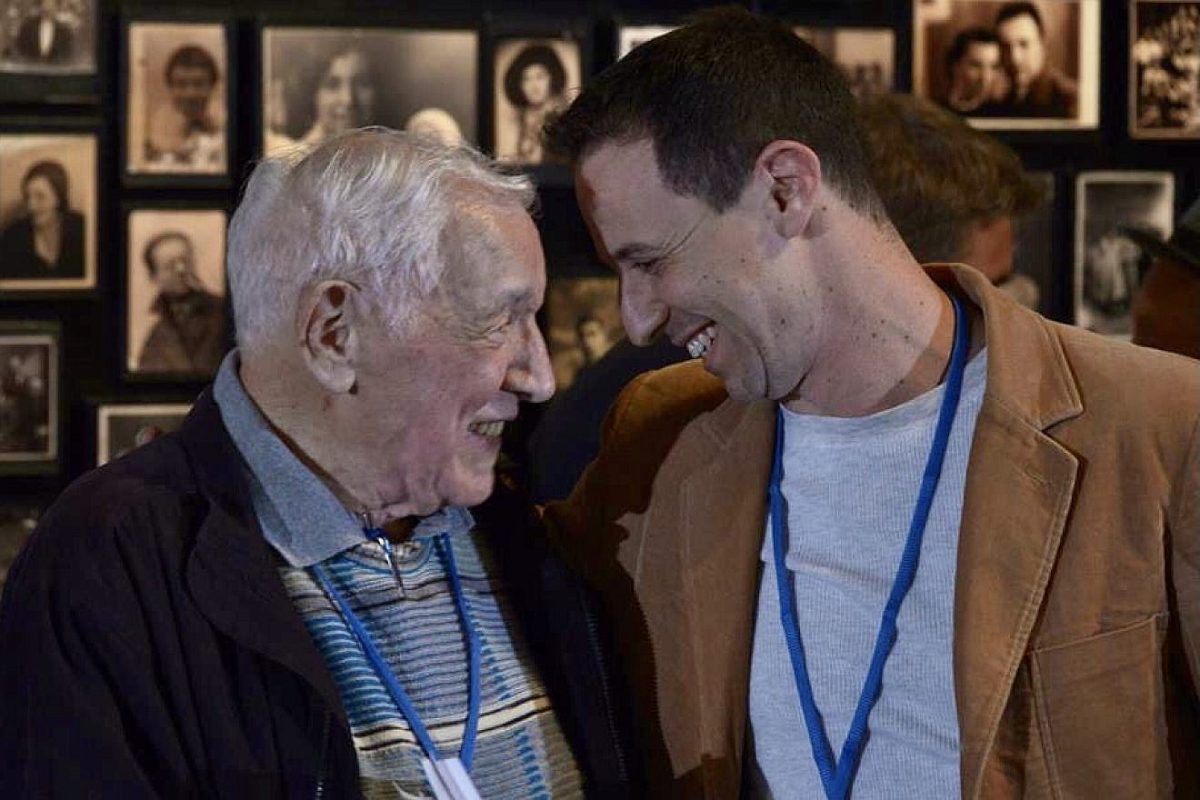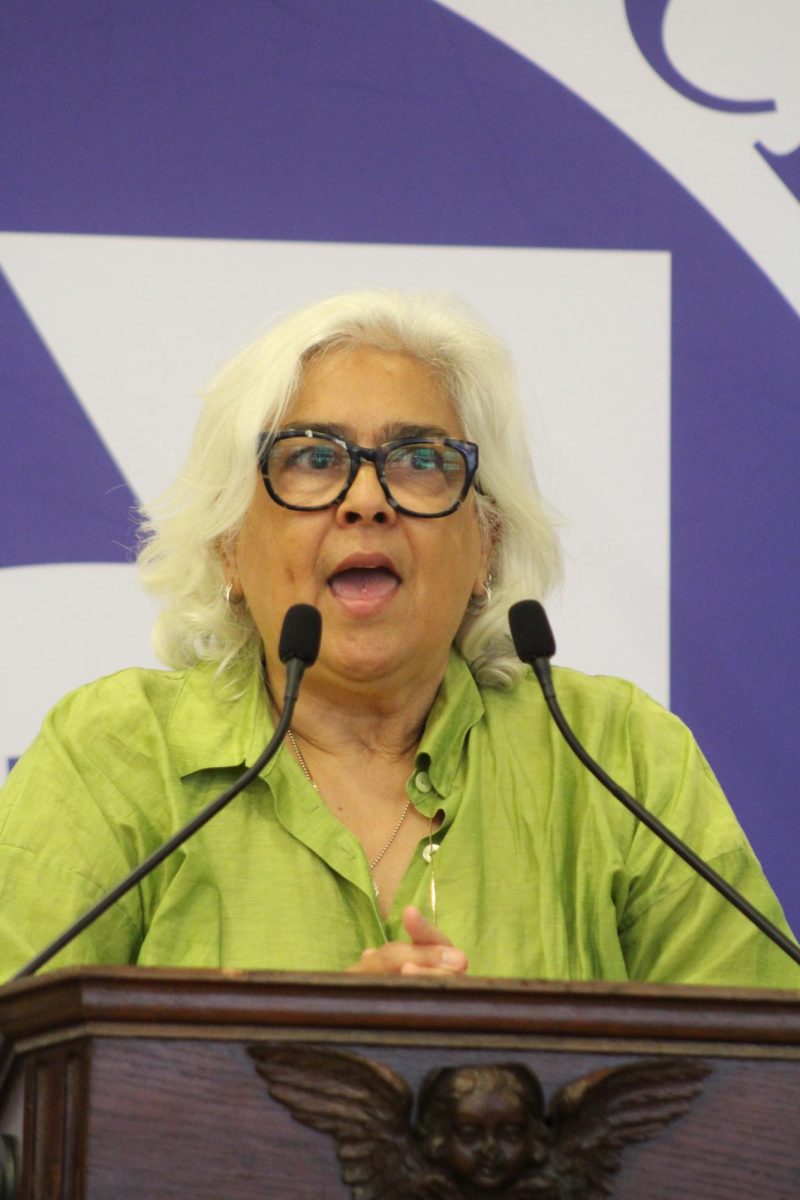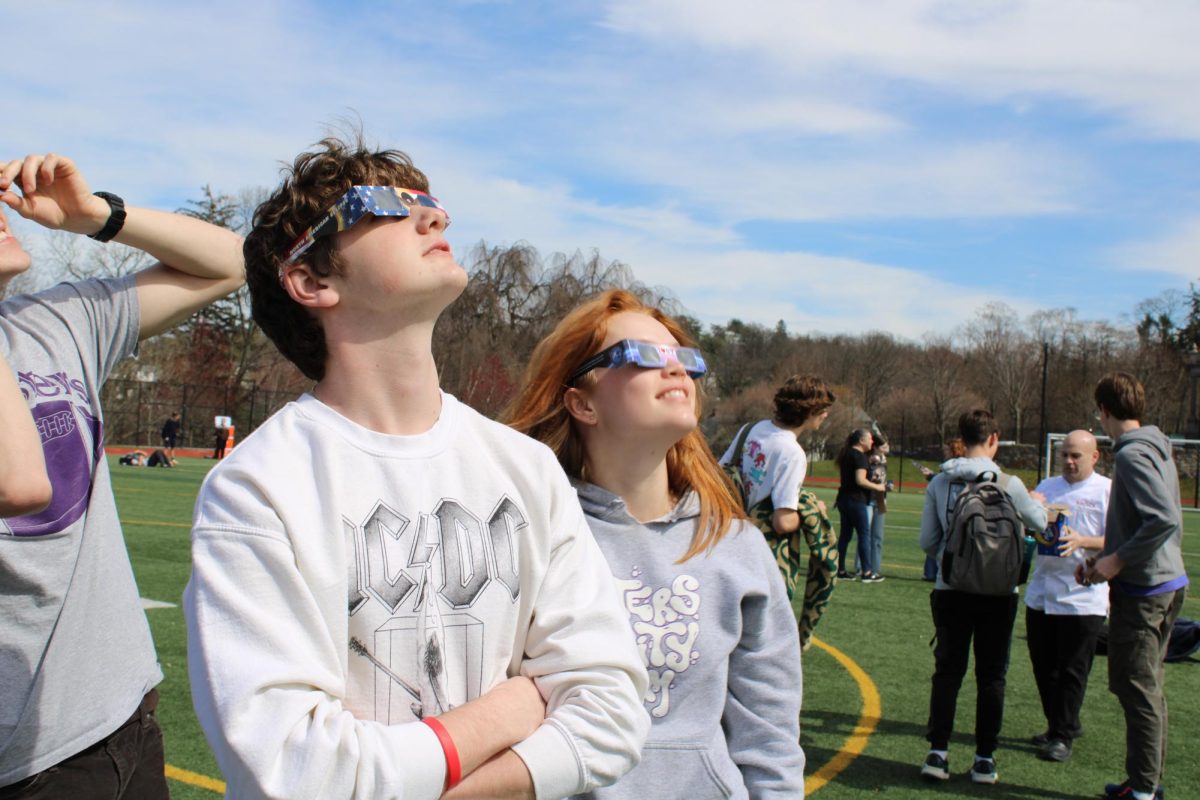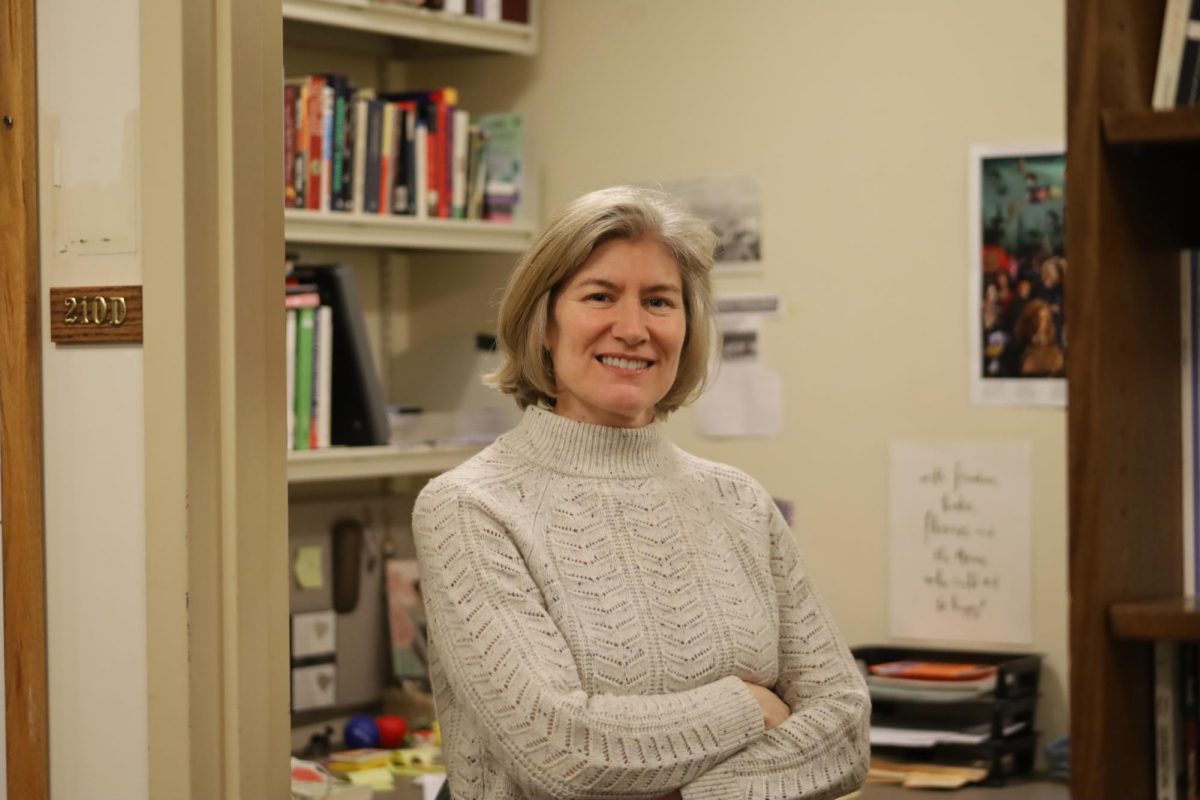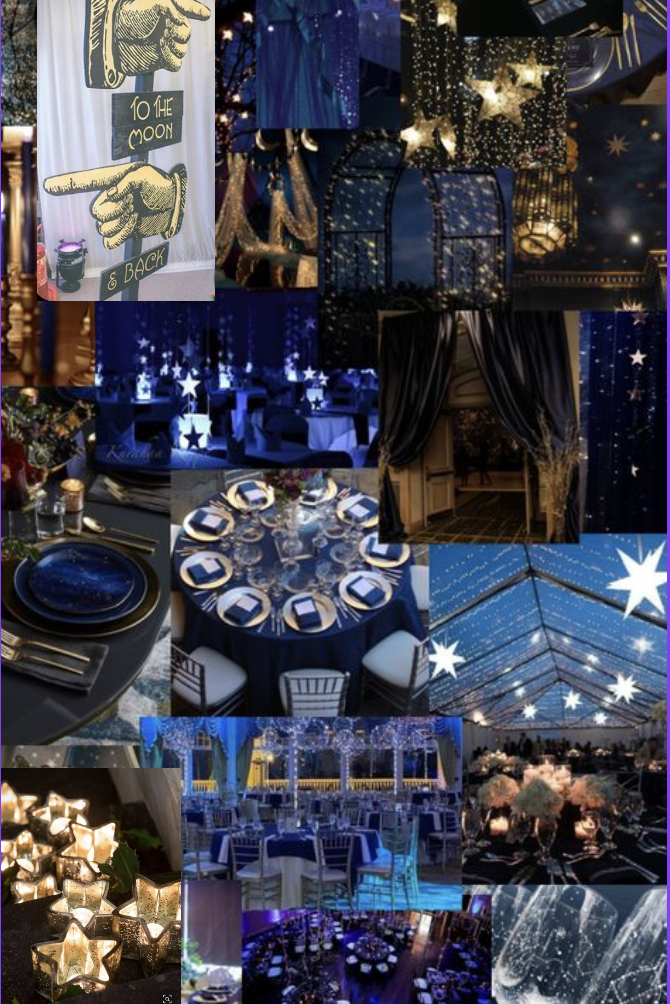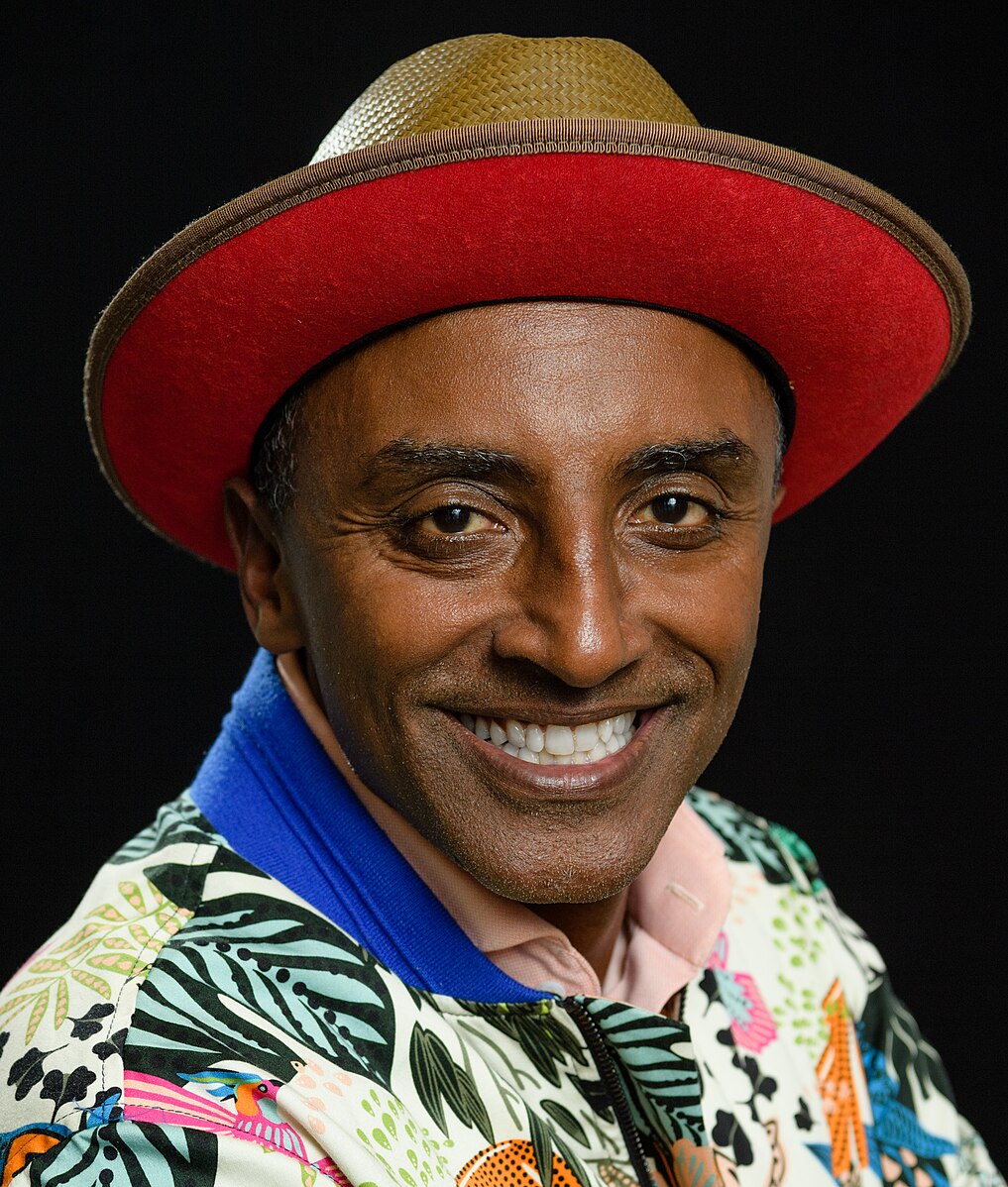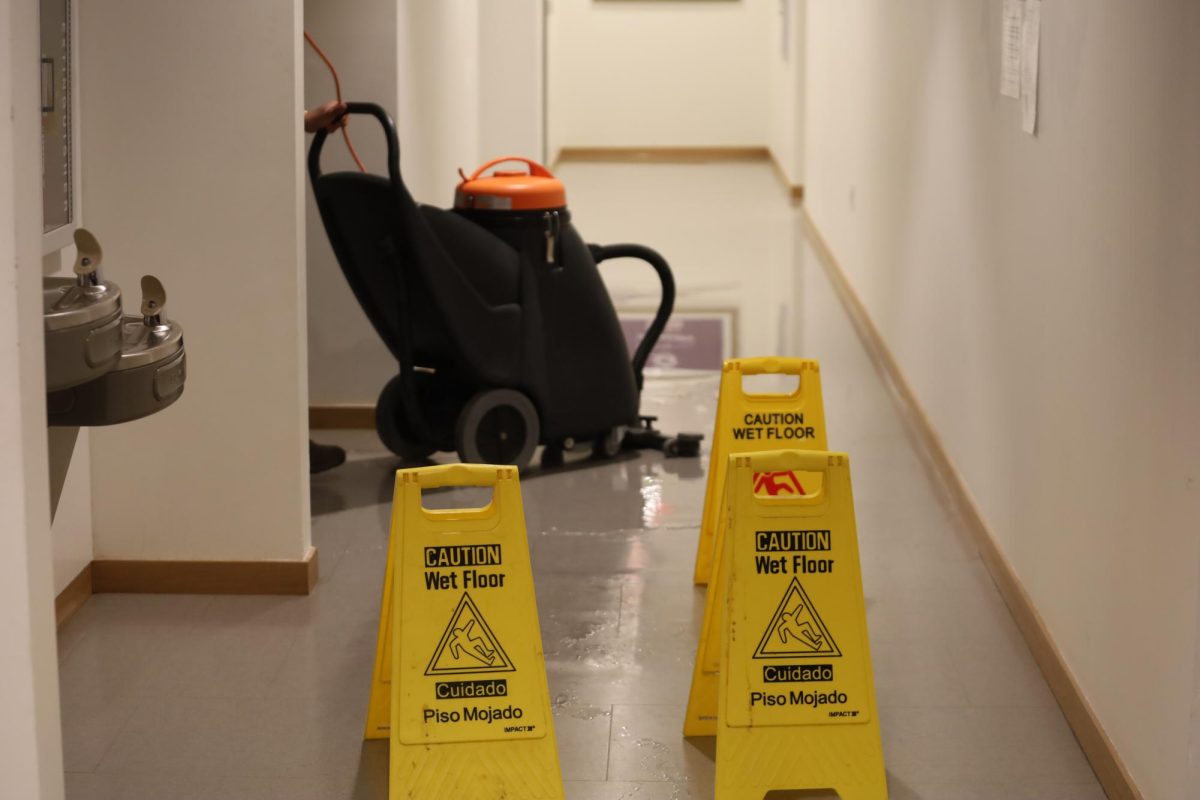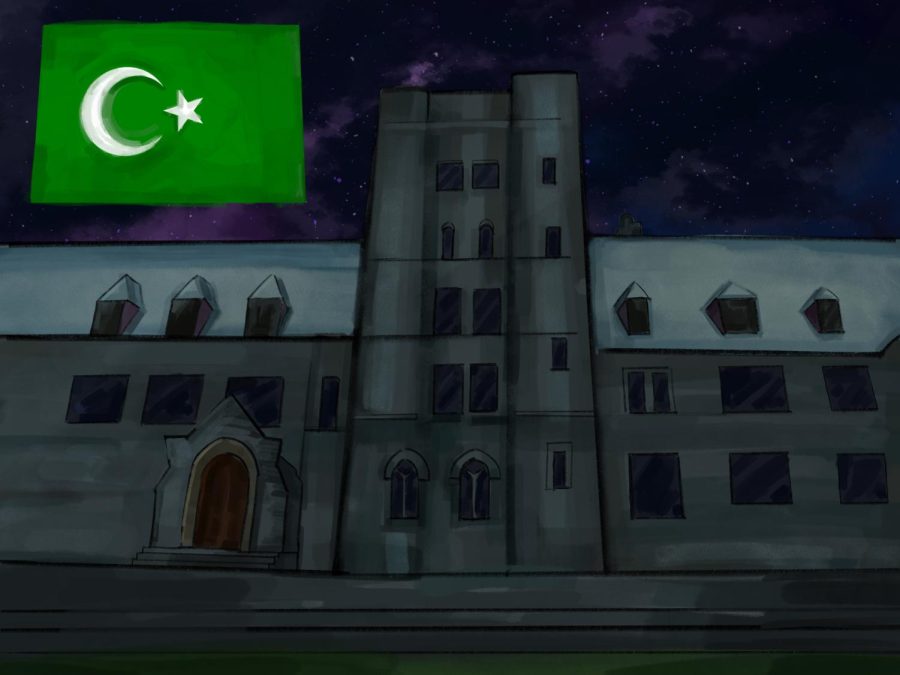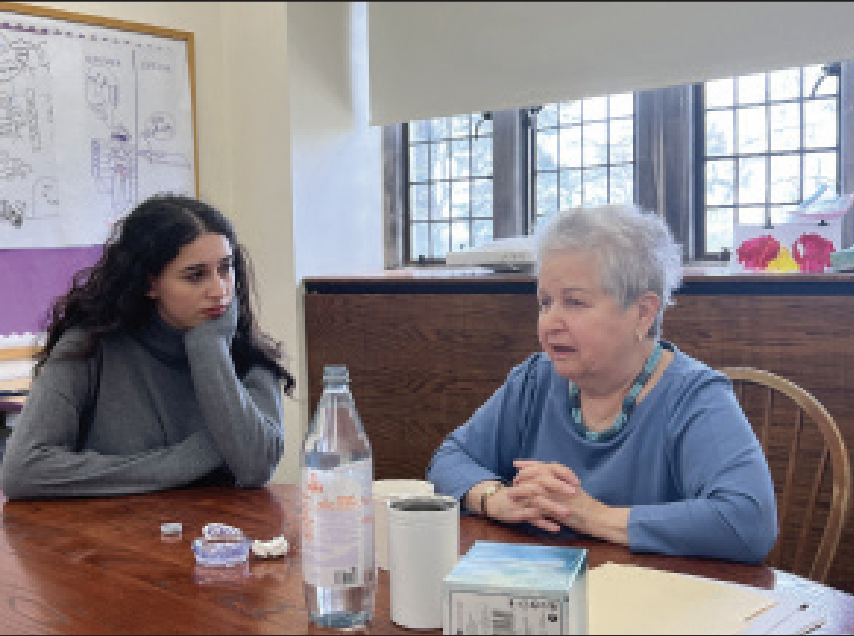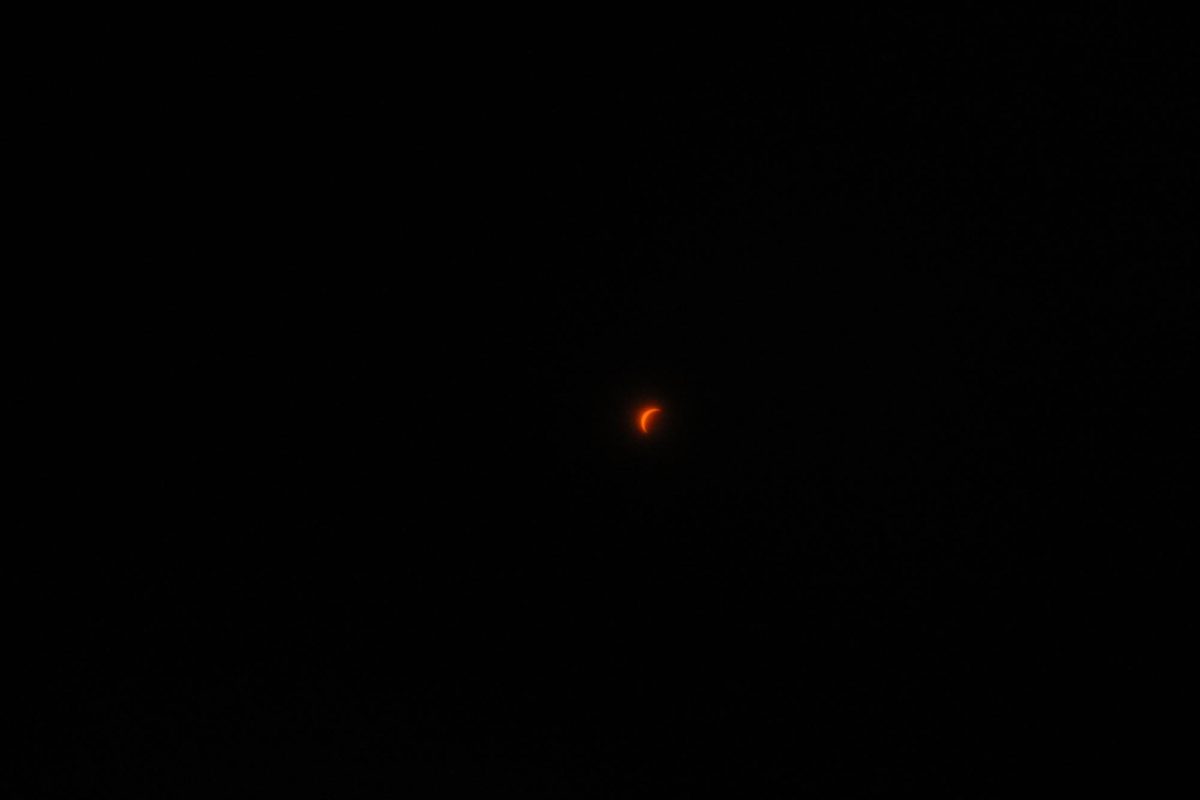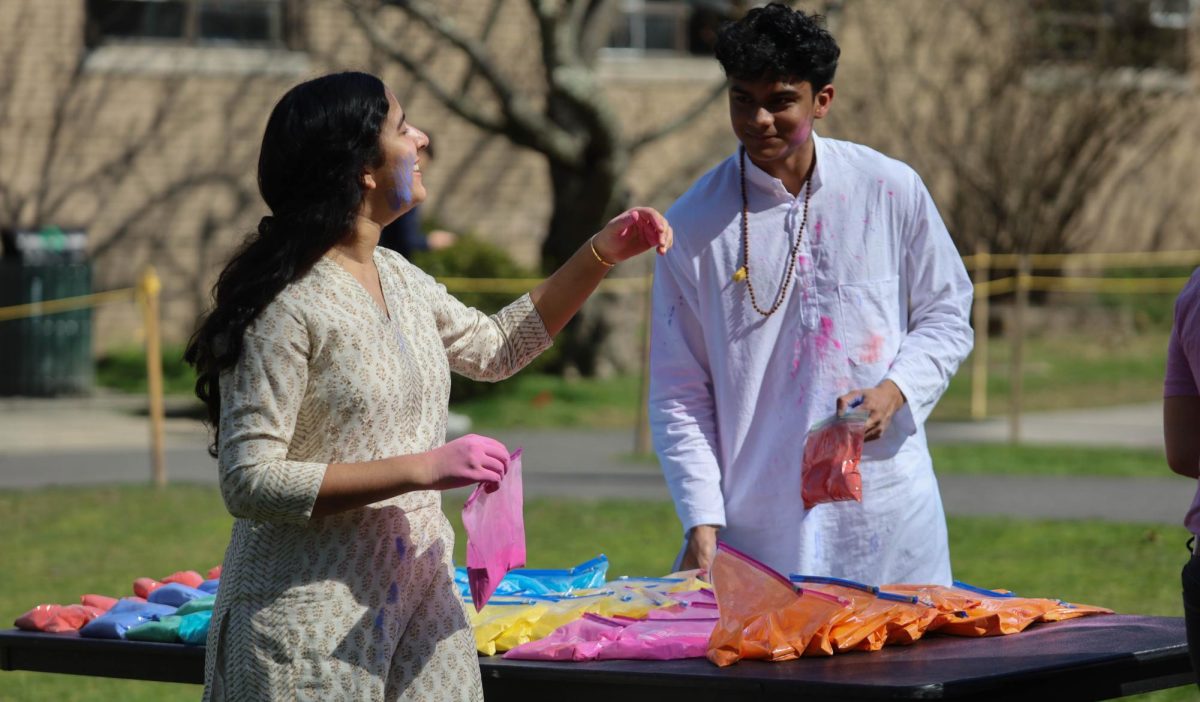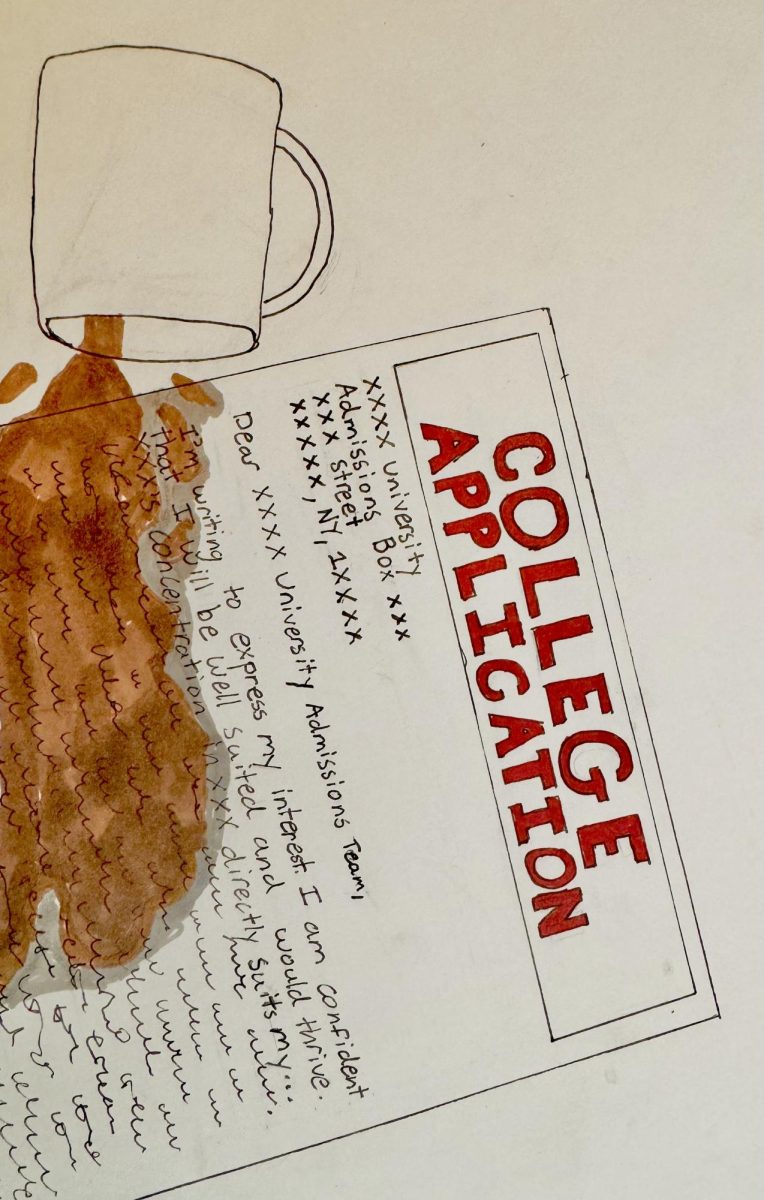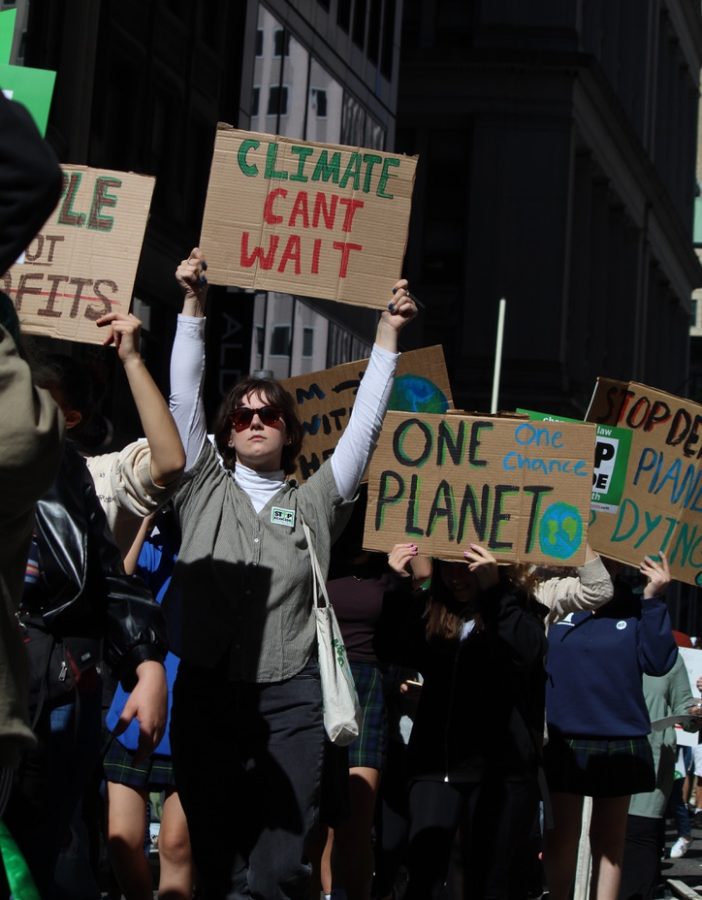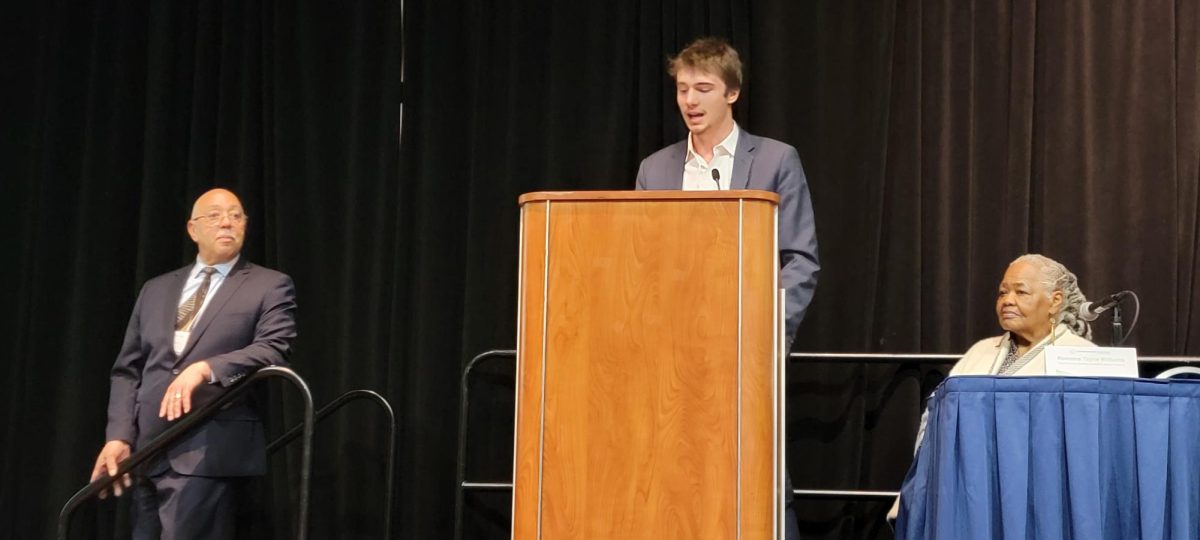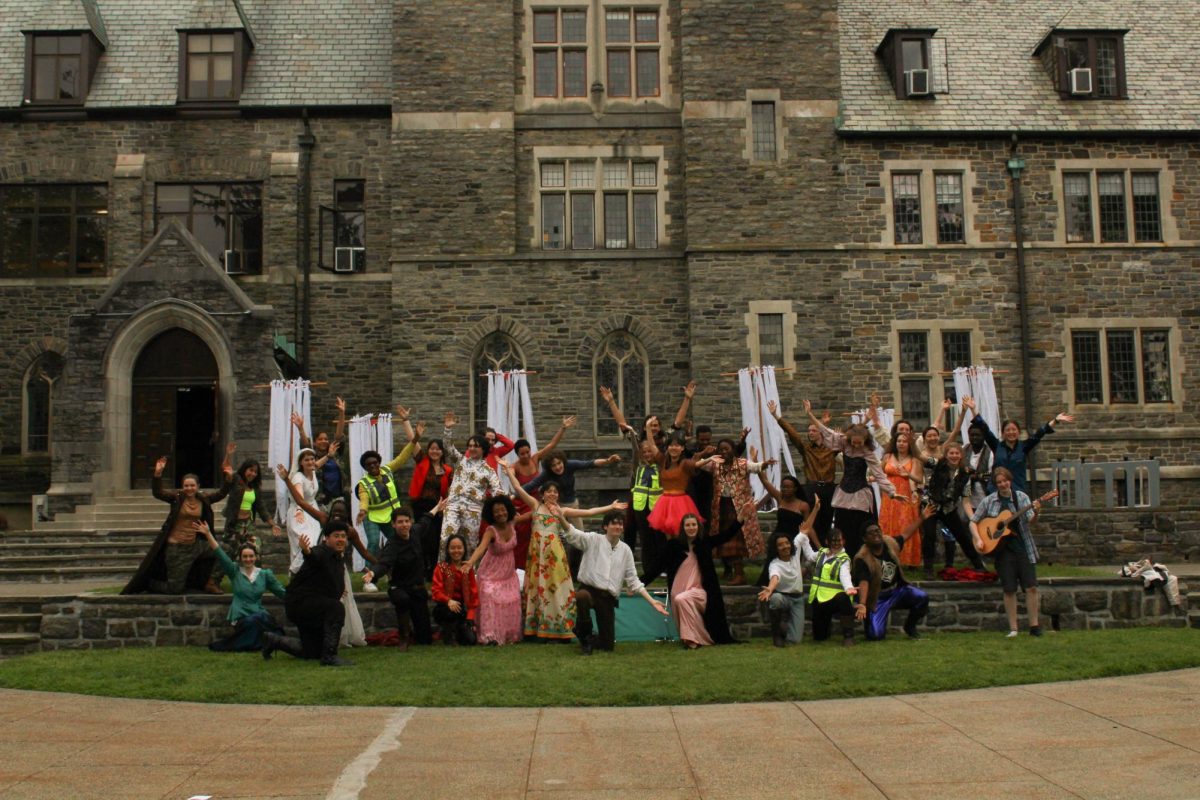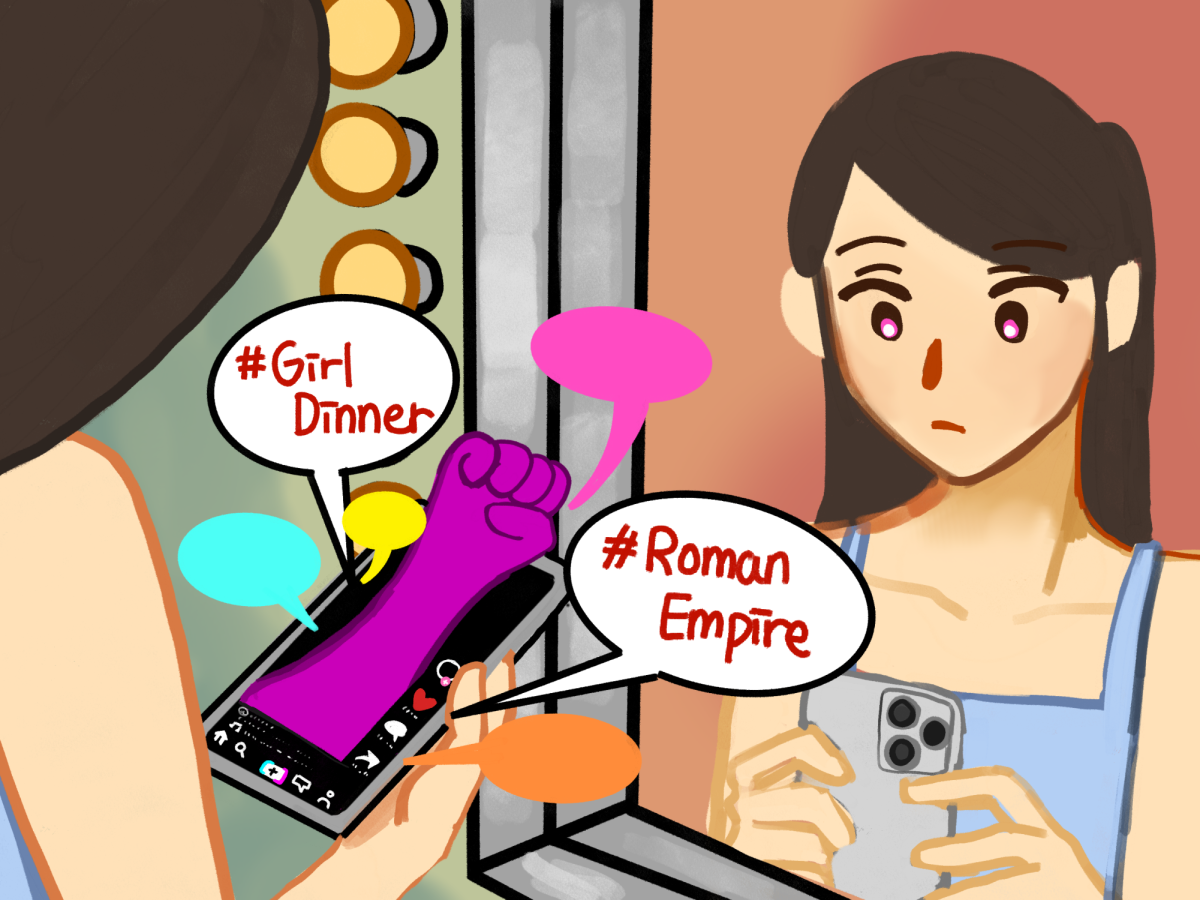With all the turmoil in the world today, including the war in Ukraine, the October 7 attack on Israel, Israel’s conflict in Gaza, and continued racism and antisemitism in this country, the Masters community has gathered to honor Holocaust Remembrance Day with a documentary named “How Saba Kept Singing.”
The documentary focuses on David “Saba” Wisnia, a Holocaust survivor, and his grandson Avi Wisnia. His story demonstrates how the human spirit, will, and love cannot be extinguished even amid pure terror and evil. Despite facing one of the most monstrous examples of inhumanity and cruelty, Saba survived through music, community, and culture.
Upper School English teacher and the Club Advisor of Jewish Culture Club, Miriam Emery, feels it is important to remember the Holocaust because of the appalling acts of anti-semitism occurring in the world today. “I think that the reaction on October 7 across the world saying ‘Oh it’s not that bad, it’s exaggerated, they are fake pictures,’ is very similar to the Holocaust denial. It is extremely scary that not only do people forget about history, but they actually deny it happened,” she said.
Sara Taksler, the filmmaker of “How Saba Kept Singing,” said she was shocked by one particular scene in the film, in which Saba explains that the houses outside the camp knew of the mistreatment and injustice.
I realized I was one of the people on the other side of the gate … I’m recognizing that throughout our lives, we can all move back and forth: between being victims and perpetrators.
— Sara Taksler
Taksler compares this scene to how racism is viewed in America today. “I watched that scene, and I realized I was one of the people on the other side of the gate. I’m white. Of course, I knew that there was racism for Black people in this society, but I hadn’t been doing very much, and it was this really sad realization because I identified with people who I would never want to identify with. I’m recognizing that throughout our lives, we can all move back and forth: between being victims and perpetrators.”
Although almost 79 years have passed since the liberation of Auschwitz, anti-semitism is still prevalent in our society. Senior and co-president of Jewish Culture Club Lily Zuckerman interned at Retroreport, a news organization, last summer, where she discovered the documentary. She believes Saba’s story about the Holocaust and the recent tragic events in Israel truly proves the closeness and connectedness of the Jewish community.
Zuckerman said, “It’s really important that we realize that this wasn’t so long ago and that history could repeat itself. It’s something to think about. Hearing these people’s stories, I think, for me personally, it really does make you proud to be Jewish.”















